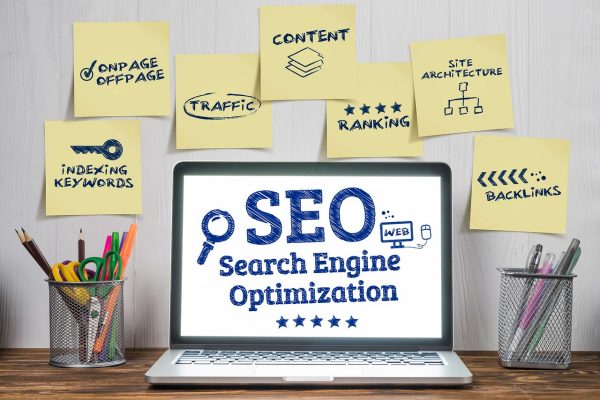

Budget-Smart PPC Tactics for Small and Mid-Sized Businesses
For small and mid-sized businesses (SMBs), stretching every advertising dollar counts. Yet, the challenge isn’t just about spending less but spending wisely. How can you claim maximum visibility without breaking the bank? The answer lies in strategic pay-per-click (PPC) tactics tailored to your unique budget and market size.
Geo-Targeting and Dayparting: Amplifying Every Cent of Your Ad Spend
When advertising dollars are limited, pinpoint precision is vital. Implementing location targeting strategies allows you to focus your PPC ads on users within specific geographic areas . Whether that’s cities, neighborhoods, or even a radius around your store. This prevents your budget waste on clicks from viewers unlikely to convert.
Layering dayparting, also called time scheduling, helps ensure your ads show only during the hours when your target audience is most active or likely to convert. For example, a local bakery might limit ads to morning and afternoon rush times. For service providers, targeting business hours can maximize leads.
Why scatter your budget broadly when narrowing your focus increases effectiveness? Combining these two strategies can significantly extend your reach within your key markets without inflating costs.
The Power of High-Intent, Long-Tail Keywords
Not all keywords deliver equal results. High-intent long-tail keywords . Those more specific and often longer search terms . Tend to attract users closer to making a decision. Their specificity not only lowers competition but can yield 2.5 times higher conversion rates compared to broad keywords.
For example, instead of bidding on “shoes,” targeting “women’s waterproof trail running shoes size 8” attracts visitors with a clearer intent to purchase. Mastering advanced keyword research techniques helps focus on these types of keywords to improve lead quality and ensure your ads are seen by those ready to act.
Using Negative Keywords to Boost ROI and Eliminate Irrelevant Traffic
Have you ever wasted your precious advertising budget on clicks from audiences that hold no interest in your offerings? Negative keywords help prevent your ads from appearing for irrelevant terms. By filtering out searches unrelated to your products or services, you preserve your budget for genuinely interested prospects.
For instance, a business selling professional cameras might exclude keywords like “free,” “cheap,” or “kids” if these do not align with their target market. Understanding negative keyword strategies and continuously refining your negative keyword list sharpens audience targeting, lowers wasted spend, and enhances your overall return on investment (ROI).
Alt: Team discussing targeted marketing strategies
Caption: Fine-tuning your ad targeting amplifies marketing effectiveness.
Setting Realistic Goals and KPIs Based on Your Budget
Small and mid-sized businesses often face the pitfall of setting unachievable PPC goals. If you don’t align your expectations with your budget capacity, you risk chasing vanity metrics instead of meaningful outcomes. Instead, identify clear, measurable objectives that reflect what your budget can realistically achieve.
Consider these possible goals:
- Driving a specific number of qualified leads monthly
- Achieving a target cost-per-acquisition (CPA)
- Increasing website visits or product page views within budget
Choose key performance indicators (KPIs) relevant to these goals, such as click-through rate (CTR), conversion rate, and ROI. Establish benchmarks based on your industry and past campaign data, then continuously monitor and adjust campaigns accordingly. This disciplined approach helps keep your campaigns grounded in reality while maximizing impact.
Cost-Effective Alternatives to Google Ads for Targeting Niche Markets
While Google Ads dominates PPC advertising, it’s not the only player offering valuable exposure. Exploring multi-platform PPC strategies can sometimes lead to lower CPCs and access to niche audiences.
Consider these alternatives:
- Bing Ads: Generally cheaper CPCs and access to a different demographic, often older users and professionals.
- Outbrain and Taboola: Ideal for content discovery campaigns designed to drive engagement via native advertising.
- BuySellAds.com: Effective for banner ads targeted at specific industry verticals.
- Amazon Advertising: Great for businesses in e-commerce looking to capture shoppers directly on retail platforms.
Choosing the right platform depends on your product or service, target market, and campaign objectives. Experimenting across several can reveal unexpected opportunities to maximize your PPC budget.
Alt: Business owner reviewing PPC ad performance
Caption: Analyzing campaign data is crucial for budget-conscious PPC success.
Frequently Asked Questions
How does geo-targeting improve PPC campaign efficiency?
Geo-targeting focuses your advertising on audiences within specific locations, reducing wasted spend on viewers unlikely to convert. This improves campaign efficiency by directing budget where it’s most likely to generate meaningful leads.
Why are long-tail keywords better for small business PPC?
Long-tail keywords are more specific and typically indicate higher buying intent, meaning visitors using these terms are closer to making a purchase. They also face less competition, resulting in better conversion rates and lower costs.
What are negative keywords and why should I use them?
Negative keywords prevent your ads from appearing for irrelevant or unrelated search queries. Using them reduces wasted clicks, lowers costs, and improves your overall ROI by only targeting interested prospects.
How can I set realistic PPC goals with a limited budget?
Align your goals with what your budget can reasonably achieve. Focus on measurable KPIs like cost-per-acquisition and conversion rate, and adjust campaigns based on performance data to optimize results.
Are there viable alternatives to Google Ads for smaller businesses?
Yes, platforms like Bing Ads, Outbrain, Taboola, BuySellAds.com, and Amazon Advertising offer cost-effective PPC options targeting niche markets, often with lower costs-per-click and specialized audiences.
Additional Insights on Budget-Smart PPC for SMEs
Understanding how to allocate your PPC budget strategically is crucial in elevating your small or mid-sized business. The process begins with meticulous planning paired with ongoing evaluation and flexibility.
Consider scheduling regular review sessions with your marketing team or advisor. Assess which geo-targeted locations and time slots yield the best engagement and conversions. What worked last quarter may need recalibration as market behavior shifts.
Equally important is collaborating on your keyword strategies together. Long-tail keywords and negative keywords are not ‘set and forget’ tactics. They require refinement, testing, and adaptation to evolving search trends and competitor movements.
With a clear, data-driven approach to your PPC campaigns, you empower your business to compete confidently without exhausting your limited resources.

Alt: Small business owner planning PPC budget
Caption: Effective budget planning is the foundation of successful PPC campaigns for SMBs.

Alt: Digital marketing team discussing PPC campaign
Caption: Collaboration ensures continuous optimization and smarter PPC spend.









